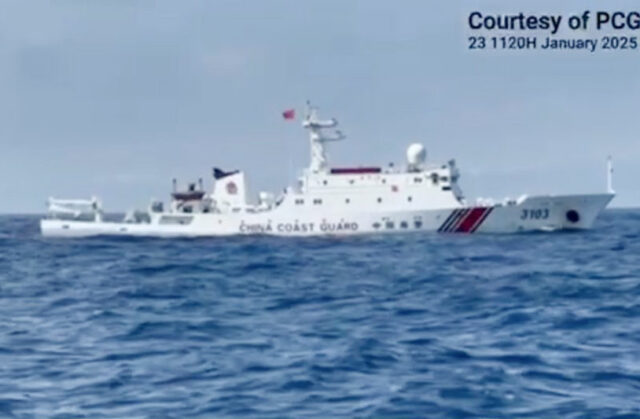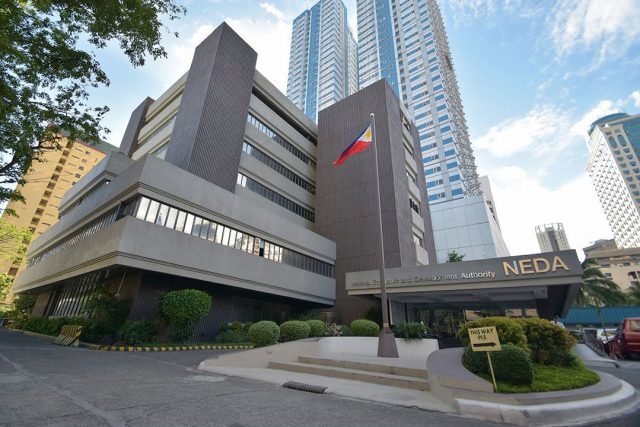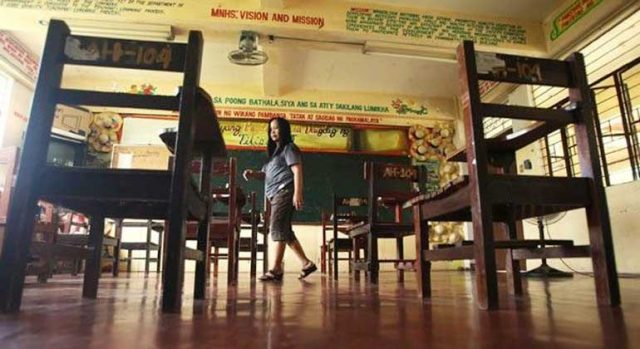ICC likely to proceed with Philippine drug war probe despite US sanction threat
By Chloe Mari A. Hufana, Reporter
POSSIBLE US sanctions against the International Criminal Court (ICC) are unlikely to quash the tribunal’s interest in investigating the Philippines’ deadly war on drugs, which has drawn international scrutiny over human rights violations, political analysts said on Monday.
The Philippines should still push the ICC probe of ex-President Rodrigo R. Duterte’s anti-illegal drug campaign even if Washington undermines the ICC “if we are to remain adamant about promoting and adhering to democratic norms and the rule of law,” Josue Raphael J. Cortez, a diplomacy instructor at the De La Salle-College of St. Benilde’s School of Diplomacy and Governance, said in a Facebook Messenger chat on Monday.
“This is something that we want in line with our campaign for a nonpermanent seat in the United Nations Security Council by 2027,” he added.
Mr. Cortez noted that if the Philippine government chooses to collaborate with the ICC and the International Police (Interpol) once the court orders the arrest of key actors in the drug war, the US decision to penalize the ICC would have a minimal impact on such efforts.
Manila would likely feel pressured to align its actions with Washington’s stance on the ICC due to US President Donald J. Trump’s “drastic” orders, he added.
“In terms of strengthening our alliance, furthering our economic partnership, and ensuring the welfare of Filipino migrants in the US, our decision to support Washington on the matter may be some sort of appeasement towards Washington’s new regime,” he said.
The ICC might assert its independence and continue probing the bloody drug war, National Union of Peoples’ Lawyers (NUPL) President Ephraim B. Cortez said.
“We have to wait and see how the ICC would respond to the threat of sanctions from the US,” he said in a Viber message. “Of prime consideration is whether the US will consider the Philippines a US ally within the context of the proposed US bill.”
The US House of Representatives earlier this month approved a bill that seeks to sanction the ICC in protest of its arrest warrants for Israeli Prime Minister Benjamin Netanyahu and his former defense minister over Israel’s military campaign in Gaza.
The vote was 243 to 140 in favor of the Illegitimate Court Counteraction Act, which would sanction any foreigner who investigates, arrests, detains, or prosecutes US citizens or those of an allied country, including Israel, who are not members of the ICC, Reuters reported on Jan. 11.
The ICC is a permanent court that can prosecute people for war crimes, crimes against humanity, genocide and the crime of aggression in member states or by their nationals.
“Although the US is not a major financial contributor to the ICC, the sanctions proposed under the bill will affect US companies like Microsoft, financial and banking institutions that have dealings with the ICC,” NUPL’s Mr. Cortez said. “This may also move some US allies who are major contributors to the ICC, like Germany and the UK, to follow suit.”
“Financially, the immediate effect of a US sanction would be the cessation of US financial assistance to the ICC’s victims’ fund,” he added.
American sanctions could also affect the tribunal’s legitimacy, making more countries hesitant to work with it in the future, Benilde’s Mr. Cortez said.
“The US, by promulgating such decisions, is clearly undermining the ICC’s mandate and influence,” he said. “This will certainly debilitate the ICC’s capacity to help out in addressing certain crimes that are deemed perilous to the global order.”
The ICC started its preliminary examination of the Philippines’ war on drugs in February 2018, focusing on allegations of crimes against humanity committed under Mr. Duterte’s anti-narcotics campaign.
The probe examined reports of extrajudicial killings and widespread human rights violations, which resulted in thousands of deaths, including those of minors and civilians.
In March 2019, Mr. Duterte withdrew the Philippines from the ICC, citing “unwarranted attacks” against his government.
In September 2021, the ICC authorized a full investigation of the drug war, but the probe was suspended two months later after the Philippine government requested a deferral, claiming it was conducting its own probe.
The ICC resumed its investigation in early 2023, citing insufficient evidence of genuine efforts by Philippine authorities to prosecute offenders.
Philippine President Ferdinand R. Marcos, Jr. earlier said the country would not lift a finger in the probe, but Executive Secretary Lucas P. Bersamin said the country would respond favorably if the ICC seeks Interpol’s help.
Justice Secretary Jesus Crispin C. Remulla has signaled a softer stance on the ICC probe, Reuters reported on Jan. 23.
“We will talk to them soon in a very well-defined manner, in the spirit of comity,” he told Reuters. “Some people are trying to bridge the divide to bring us together, so we can sit at one table. There are certain areas where we can cooperate… Lines have to be drawn properly.”












